Coast Posts
- A Newsletter From FEC
| |
News from Future Earth Coasts International Project Office
Shanghai | East China Normal University
| |
|
Highlights:
- FEC Fellows Session: Human Development and Coasts;
- Challenges in Tropical Coastal Zone Management - Experiences and Lessons Learned;
- Exploring adaptive capacity: Observations from the vulnerable human-coastal environmental system of the Bay of Bengal in India;
- Coastal protection issues: Protected area, Coastal Hazards, Geoparks, National Scenic Area and National Parks.
| |
*Maluan Bay and Jinluan Bay, Dongshan, Zhangzhou, photographer @ Zhao Gaoxiang | | |
FEC Fellows Session: Human Development and Coasts
| |
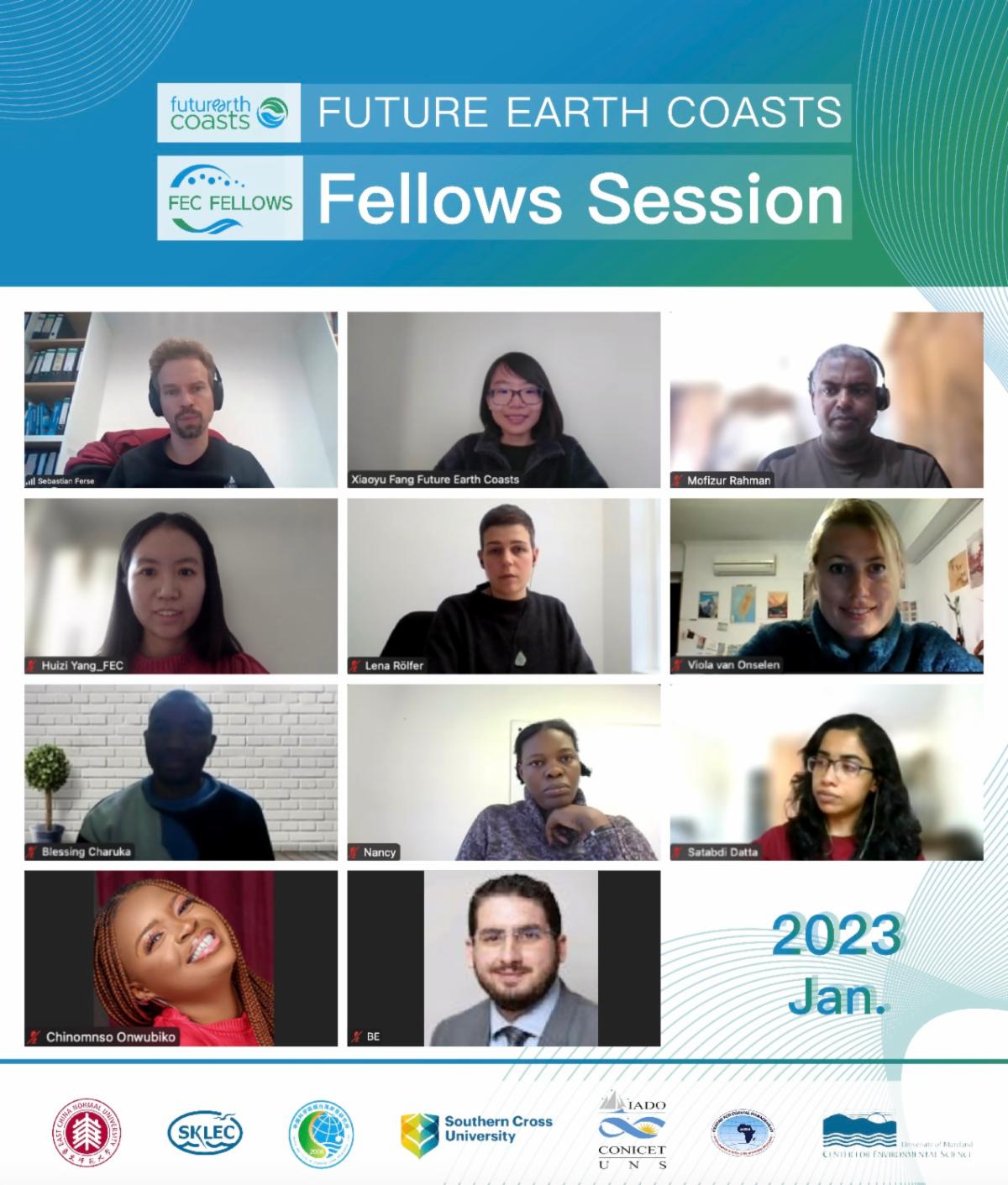 | |
What are the consequences of ‘business as usual’ practices at the coast?
Which are sustainable and which are not?
What are the implications to human wellbeing from coastal change, and how might human activities harness and shape nature?
‘FEC Fellows Session’ took place online on 26 January. The workshop was moderated by Dr. Xiaoyu Fang, the Executive director of FEC International Project Office (China). She introduced the topic 'Human Development and Coasts' which was identified as one of three FEC themes in the research strategy of FEC (2018-2028). The three FEC themes are Dynamic Coasts, Human Development and coasts, Pathways to coastal sustainability. They are strongly inter-related and complementary. Furthermore, FEC also identified critical features of coastal systems that are particularly vulnerable to coastal change and critical to the sustainability of coastal socio-ecological systems: Small Islands, Urbanisation, The Arctic, and River mouth system. FEC has been working with its networks and community partners by applying three themes to four hotspots.
| 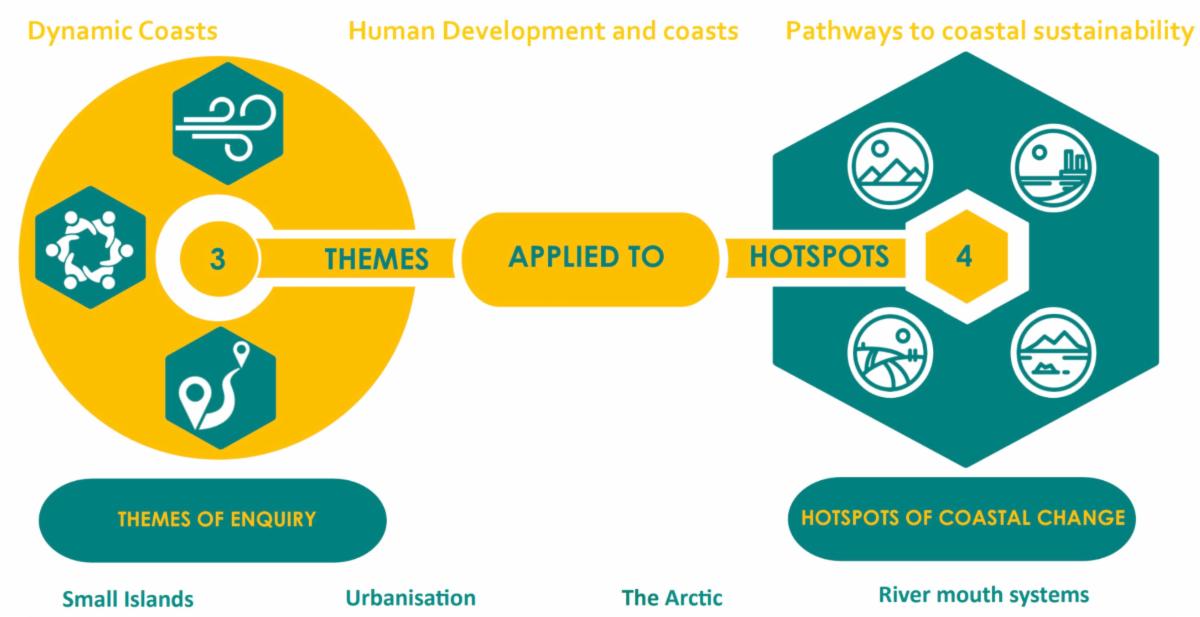 | |
Climate change and intensive human activities are ongoing and increasing threat to the healthy development of the worldwide deltas and coastal area. The scope of this session is to shed lights on the understanding of the contradiction between the human activities and the sustainable development of these area. It aimed to provide a space for fruitful discussions on the monitoring, development and management of the deltas and coastal area.
Former director of FEC, also FEC academy member Dr. Sebastian Ferse from Leibniz Centre for Tropical Marine Research (ZMT) delivered the keynote presentation and shared his perspective on current challenges in coastal sustainability. In examining coastal livelihoods, institutions and mariculture techniques, he has been trying to gather insights into options for sustainable resources uses and into strategies for the development, implementation and improvement of these uses. He pointed out that it is necessary to enhance the understanding of impacts, risks and injustices for current development practices, and offer alternative approaches and mechanisms for reducing risk, building resilience as well as promoting social justice and accountable governance systems. It is important to synthesize impacts of coastal change to understand interactions between vulnerabilities at the local, regional and global scales. He mentioned that the 'business as usual' approach to coastal areas cannot match the requirement of sustainable development and suggested that a sustainable future needs to be co-designed through four steps:
Step1: bring reginal coastal stakeholders together to agree on a way forward;
Step2: build shared understanding about the coast and identity plausible;
Step3: co-design robust coastal sustainability strategies;
Step4: co-produce innovative coastal sustainability interventions and enable transition pathways.
| |
FEC fellow Mr. Mohammed Mofizur Rahman from Potsdam Institute for Climate Impact Research (PIK, Germany) delivered his presentation focused on the multi-frontier transitions in the Ganges-Brahmaputra-Meghna Delta under global change. He is a trans-disciplinary Environmental Scientist from Bangladesh, working on human dimension of environmental change especially in the low lying coastal river deltas. He is familiar with climate change and natural resources related issues in coastal areas in Bangladesh and beyond. He combines an ethnographic approach with computational models to understand the present and predict the future of the Bengal Delta. In the presentation, he summarized four transitions including demographic, biophysical, social ecological and governance transitions. He also highlighted the change of mindset from short-term to long-term planning in coastal sustainability in Bangladesh and introduced ‘Bangladesh Delta Plan 2100 - the best gift for the future generations by the present generation’. | 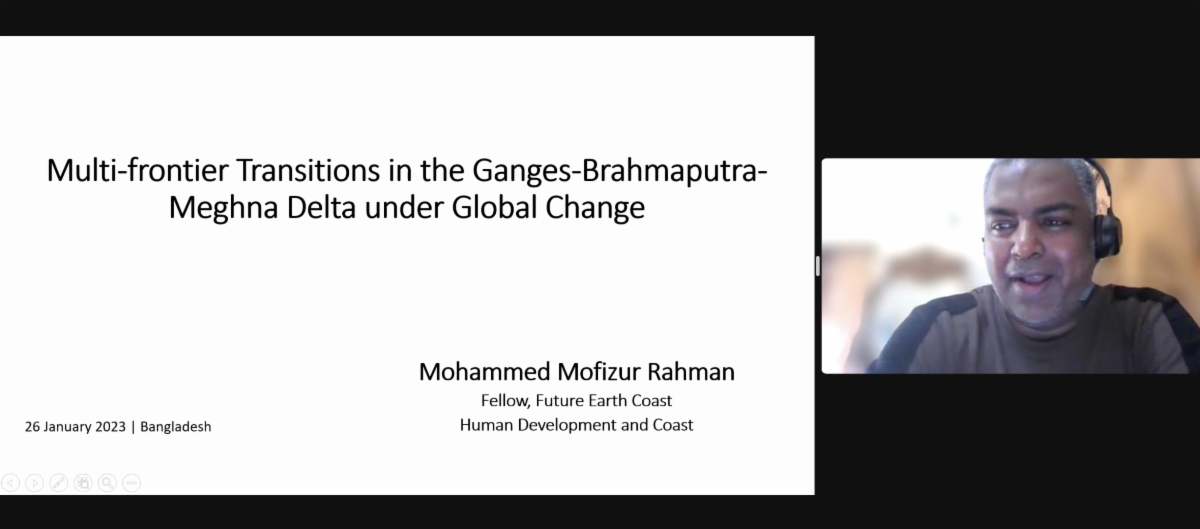 | |
|
A discussion followed and all participants shared their insights on why and how to achieve the sustainable future, and how to improve governance efficiency.
This workshop provided opportunities for fellows from different coastal communities to share their opinions on potential solutions for the sustainable development in coastal regions. It was agreed that it needs to be tailored to local conditions and take the demands of different people into consideration. Last but not least, clarification of authority and responsibility is also important.
| |
Challenges in Tropical Coastal Zone Management - Experiences and Lessons Learned | | |
|
|
This book is edited by FEC Academy member Sebastian C.A. Ferse together with his two colleagues. It is focused on tropical coasts, which are highly vulnerable due to a multitude of stressors. Population growth is substantial, habitats are lost and biodiversity is reduced at an alarming rate, severely affecting many ecosystem services. This situation calls for sound coastal management and the effective engagement of all relevant stakeholders.
About two decades ago the M.Sc. program ISATEC (International Studies in Aquatic Tropical Ecology) was created at Bremen University (Germany) to train young scientists for a professional engagement in the complex field of tropical coastal and resource management. This book provides a platform for those Alumni to report on their work experiences and findings in their home countries and covers all regions of the tropical belt. Part I of the book provides a short review of the state of the tropical ocean and its resources and of international attempts towards sustainable ocean management starting with the Rio Declaration on Environment and Development in 1992. Part II deals with country case studies, and part III focuses on an evaluation & synopsis of those contributions. Emerging key issues for management and conservation of the tropical coastal environments are presented and critical challenges on the path towards reaching the Sustainable Development Goals (SDGs) are discussed, as are the needs for enhancing research and capacity development.
Click here to read more
| |
Exploring adaptive capacity: Observations from the vulnerable human-coastal environmental system of the Bay of Bengal in India | |
|
This article co-written by FEC Academy member Prof. Joyashree Roy, presents the factors that help build the adaptive capacity of individuals to reduce vulnerability from natural threats. The findings are based on primary data on individuals engaged in various livelihood practices in the Digha-Sankarpur- Mandarmoni region along the eastern coastline of the Bay of Bengal in India. Coastal communities have their individual perceptions about their vulnerability to natural threats and associated risks to various assets. Based on perception survey responses, “adaptive capacity” is measured and the determining factors are analyzed with an aim to provide policy guidelines for strengthening the adaptive capacity of people dependent on coastal ecosystem-based livelihoods. Findings show that income security for individuals in coastal systems can be achieved through a livelihood diversification strategy. The scope for individuals to build personal savings, have access to financial institutions, and engage in collaborative actions with immediate neighbors in the community help to prevent multiple losses at the individual level aids in their adaptive capacity. Government actions to provide institutional and governance support and incentives to promote livelihood diversification and personal savings would enhance adaptive capacity through institutional actions. Public investment in public goods and services, including protection and monitoring of natural coastal ecosystems, infrastructure development, technological intervention, providing access to information, and community empowerment, have important roles to play in enhancing adaptive capacity.
Click here to read more
| |
Coastal protection issues: Protected area, coastal hazards, Geoparks, National Scenic Area and National Parks | |
|
October 4-8, 2023 (Taipei, China)
Organized and Hosted by National Taiwan University; National Taiwan Normal University; National Donghwa University; Taiwan Geoparks Association; Future Earth Coasts - SE Regional Engagement Partner.
| |
|
Abstracts and Papers
For each submitted paper abstract, one submission form should be filled out. Please include all authors’ names in the form. The submission form, along with a paper abstract of no more than 250 words, should be submitted by May 30, 2023.
A peer review process will take place before the report of paper abstract acceptance will be announced by June 20, 2023. Full papers for each individual abstract submission are due by August 31, 2023. For authors who contribute full paper(s) timely and being accepted for publishing, each paper will be waived the registration fee and field trip cost for one author.
The abstract must contain the title of the paper, name and contact of the author(s), affiliation, and abstract text. It is suggested to be typed with single spaced Times New Roman (Font Size 12).
Abstracts should be submitted as an email attachment to Professor Wen-Cheng Wang ([email protected]).
Sub-themes
1. Coastal protected area – its challenge, opportunity and management
2. Geo-education, Geo-tourism, and stewardship for sustainable geoparks
3. Future Earth Coasts—issues and solution
| |
Updates from FEC Fellows:
Dr. Isa Elegbede
| |
New Publication:
Chemical compositions of bivalves shells: Anadara senilis, Crassostrea gasar, and Mytilus edulis and their potential for a sustainable circular economy
| 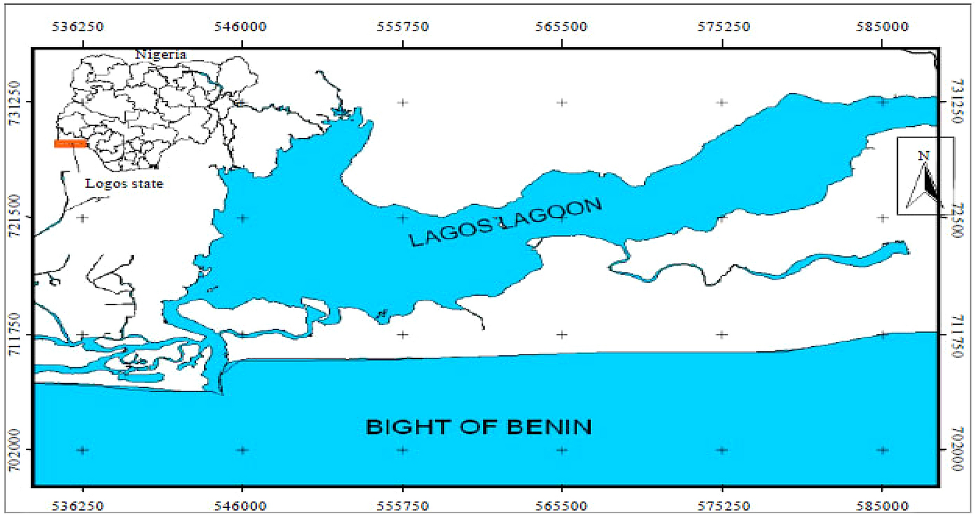 | |
The paradigm termed circular blue economy has become a concept that is greatly associated with the utilization of marine resources to ensure continued sustainability. Several constraints and limitations related to plants and plant products means human needs to look beyond green economy. The chemical constituents of animals also allow researchers to evaluate their growth and development. This study evaluates the proximate and chemical compositions of Anadara senilis, Crassostrea gasar, and Mytilus edulis, with emphasizes on their calcium and calcium carbonate contents and industrial importance. A total of 270 live bivalve samples were collected from March to May 2021 from Lagos Lagoon harbour. Each bivalve sample collected was opened to separate the flesh from the species’ shell, sun-dried and transported to the laboratory for analysis. One-way analysis of variance was adopted to estimate the significance level at 5% (P < 0.05). Post-HOC LSD test was performed to verify the disparity of mean. The results of this study revealed that Mytilus edulis shells had the highest moisture, crude protein, and crude fat at 1.15 ± 0.05%, 4.29 ± 0.43%, and 0.96 ± 0.15%, respectively and showed significant difference (P < 0.05). Anadara senilis shells had high levels of calcium (51.00 ± 2.87 mg/kg), magnesium (0.59 ± 0.23 mg/kg) and calcium carbonate (60.91 ± 2.50 mg/kg). Due to the high Ca and CaCO3 contents obtained, these shells can be processed alongside other biomaterials into food supplements, animal feeds, dental products, plant nutrient supplements, ornamental purpose, construction, agricultural industries among others. These would enhance the development of cottage industries, promotes farming of shell animals, help to alleviate the unemployment crisis and creation of wealth from substances which would have been regarded as waste.
Click here to read more
| | |
Updates from FEC Fellows:
Dr. Carmen Elrick-Barr
|
New Publication:
What influences the adaptive capacity of coastal critical infrastructure providers?
| 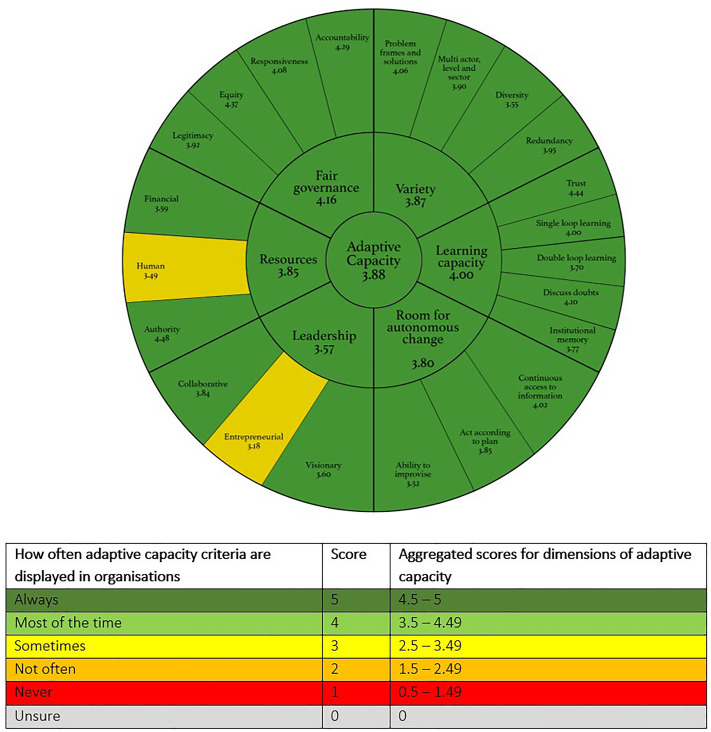 | |
Maintaining critical infrastructure functionality in the face of climate change through adaptation is a pressing issue for organisations responsible for critical infrastructure – especially in coastal areas. It is equally pressing to ensure those organisations have the capacity to adapt. The Adaptive Capacity Wheel was used to understand perceptions of the adaptive capacity held by critical infrastructure providers who have assets in locations at risk to the impacts of coastal hazards in Australia and Aotearoa-New Zealand. The findings demonstrate that those in executive management positions perceive the level of adaptive capacity to be higher than those at lower organisational levels. This is problematic as those tasked with implementing adaptive actions generally sit below the executive level. Leadership was overwhelmingly recognised as the most important element of adaptive capacity and dependencies emerged between leadership and other indicators of adaptive capacity. This article provides valuable insights into how critical infrastructure providers in Australia and Aotearoa-New Zealand are equipped to adapt to climate change. The findings indicate that building adaptive capacity within these organisations will begin with looking at the capabilities of the leadership.
Click here to read more
| | |
|
Huddleston, P., Smith, T. F., White, I., & Elrick-Barr, C. (2023). What influences the adaptive capacity of coastal critical infrastructure providers?. Urban Climate, 48, 101416.
Elegbede, I., Lawal-Are, A., Favour, O., Jolaosho, T., & Goussanou, A. (2023). Chemical compositions of bivalves shells: Anadara senilis, Crassostrea gasar, and Mytilus edulis and their potential for a sustainable circular economy. SN Applied Sciences, 5(1), 44.
Wolff M, Ferse SCA, Govan H (eds) (2023) Challenges in Tropical Coastal Zone Management - Experiences and Lessons Learned. Springer International Publishing, Cham, Switzerland.
Datta, Satabdi, Roy Joyashree (2022) Exploring Adaptive Capacity: Observations from the vulnerable human coastal environmental system of the Bay of Bengal in India. Frontiers in Climate. Vol 4.
Smith, T., Elrick-Barr, C., Thomsen, D., Celliers, L., & Le Tissier, M. (2023). Impacts of tourism on coastal areas. Cambridge Prisms: Coastal Futures, 1, E5.
Laubenstein T, Smith TF, Hobday AJ, Pecl GT, Evans K, Fulton EA & O’Donnell T, 2023, ‘Threats to Australia's oceans and coasts: a systematic review’, Ocean & Coastal Management, 231 (published online 29 Oct 2022)
Li, Y., Robinson, S.V.J., Nguyen, L.H., Liu, J., 2023. Satellite prediction of coastal hypoxia in the northern Gulf of Mexico. Remote Sensing of Environment 284, 113346.
Pereira, C.I.; Botero, C.M.; Ricaurte-Villota, C.; Coca, O.; Morales, D.; Cuker, B.; Milanes, C.B. Grounding the SHIELD Model for Tropical Coastal Environments. Sustainability 2022, 14, 12317.
Mabon L and Kawabe M (2022) 'Bring Voices from the Coast into the Fukushima Treated Water Debate' PNAS 119 (45) e2205431119.
Rölfer, L., Abson, D. J., Costa, M. M., Rosendo, S., Smith, T. F., & Celliers, L. (2022). Leveraging governance performance to enhance climate resilience. Earth's Future, 10.
AM Foley, S Moncada, M Mycoo, P Nunn, V Tandrayen‐Ragoobur, ...Wiley Interdisciplinary Reviews: Climate Change 13 (3), e769
Peng, Y., Sengupta, D., Duan, Y., Chen, C., & Tian, B. (2022). Accurate mapping of Chinese coastal aquaculture ponds using biophysical parameters based on Sentinel-2 time series images. Marine Pollution Bulletin, 181, 113901.
Rölfer, L., Celliers, L., & Abson, D. J. (2022). Resilience and coastal governance: knowledge and navigation between stability and transformation. Ecology and Society, 27(2), 40.
Brendel, A.S., Ferrelli, F., Piccolo, M.C., Perillo, G.M.E., 2022. Procesamiento de datos satelitales ópticos y de radar para la detección de cambios morfométricos: el caso de la desembocadura del río Sauce Grande (Argentina). Caminhos de Geografia 23:85-94. DOI 10.14393/RCG238658189. ISSN 1678-6343.
Castiglioni, E., Gaucher, C., Perillo, G.M.E., Sial, A.N., 2022. Marine deposits of the Chuy Formation (Late Pleistocene) and isostatic readjustments in the area of Laguna de Rocha (Uruguay). Agrociencias 26:e799. doi:10.31285/AGRO.26.799.
FERREIRA, Alexander Cesar; LACERDA, Luiz Drude de. Mangrove restoration in ne brazil: a unified contribution to adapting to global climate change. Arquivo de Ciências do Mar, Fortaleza, v. 55, p. 219-230, 2022. Especial Labomar 60 anos.
Ferreira, A. C., Borges, R., & de Lacerda, L. D. (2022). Can Sustainable Development Save Mangroves?. Sustainability, 14(3), 1263.
Rölfer, L., Elias Ilosvay, X. E., Ferse, S., Jung, J., Karcher, D. B., Kriegl, M., ... & Walker, E. Z. (2022). Disentangling Obstacles to Knowledge Co-Production for Early-Career Researchers in the Marine Sciences. Frontiers in Marine Science, 9.
de Lacerda, L. D., Ward, R. D., Borges, R., & Ferreira, A. C. (2022). Mangrove Trace Metal Biogeochemistry Response to Global Climate Change. Frontiers in Forests and Global Change, 47.
Raikes, J., Smith, T. F., Baldwin, C., & Henstra, D. (2022). Disaster risk reduction and climate policy implementation challenges in Canada and Australia. Climate Policy, 1-15.
Elrick-Barr, C. E., & Smith, T. F. (2022). Current Information Provision Rarely Helps Coastal Households Adapt to Climate Change. Sustainability, 14(5), 2904.
Onselen, V. V., Lin, T. Y., Phu, V. L., & Bui, T. V. (2021, November). Observed Coastal Morphological Changes Associated with Coastal Engineering Works at Loc An Beach, South East Vietnam. In Vietnam Symposium on Advances in Offshore Engineering (pp. 537-544). Springer, Singapore.
| |
|
Anthropocene Coasts
special column
| |
| |
|  |
|
Anthropocene Coasts, the official journal supported by Future Earth Coasts, is archived by 17 databases, such as Emerging Sources Citation Index (ESCI), SCOPUS, Google Scholar, Catalogue of Chinese High-Quality Sci-Tech Journals (Geosciences), CLOCKSS, CNKI, Wanfang, CNPIEC, Dimensions, EBSCO Discovery Service, Naver, EBSCO Discovery Service, OCLC WorldCat Discovery Service, Portico, ProQuest-ExLibris Primo, ProQuest-ExLibris Summon, TD Net Discovery Service.
Official Website:
https://www.springer.com/journal/44218
Submission system:
https://www.editorialmanager.com/anth/default1.aspx
| | |
"World Large River and Delta Systems Source-to-Sink Online Talk Series" continue to update! | |
Most of our subscribers are coasts-related researchers. If you would like to put some recruitment information or share some latest news about coastal research in FEC monthly newsletter, please feel free to contact us through [email protected]. | | | | |